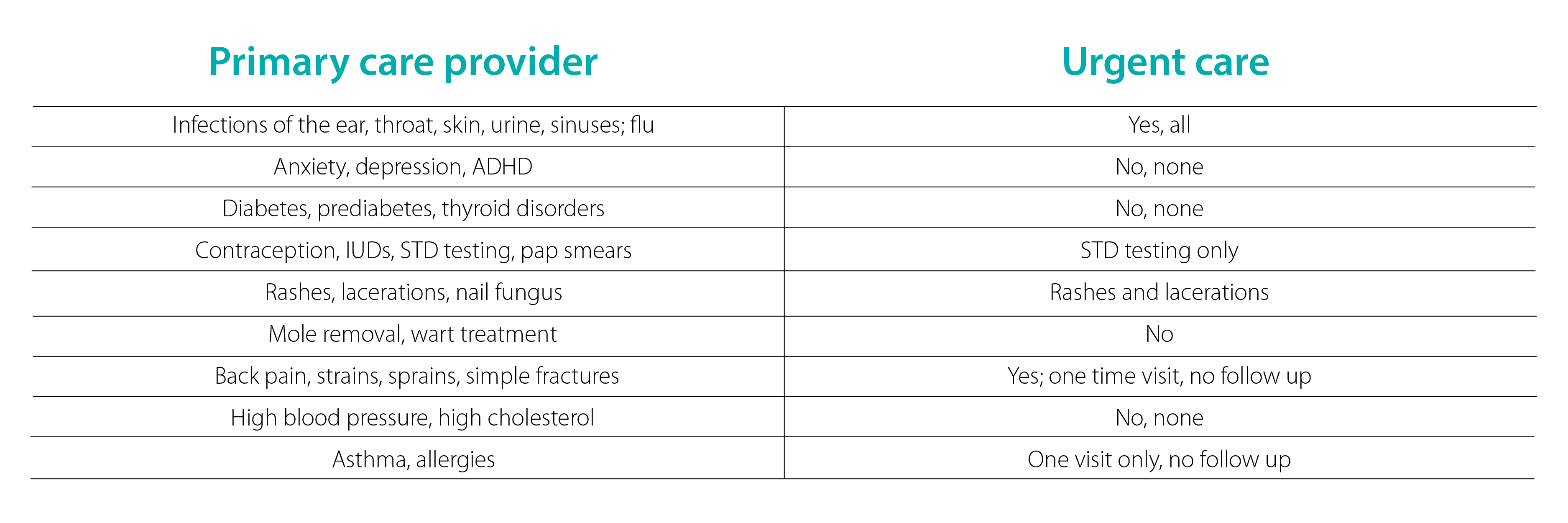Written by: Caroline Kramer, MD
Primary care providers take a holistic approach to patient care—looking at the whole person, body and mind. Unlike specialists who focus on one organ system, typically after a disease is diagnosed, primary care providers are in a unique position to screen and prevent diseases, as well as diagnose and treat them when needed. Primary care emphasizes the therapeutic relationship built with the patient and their family over time. Primary care providers include medical doctors, nurse practitioners and physician assistants. Primary care doctors may also specialize in family medicine: a discipline established in 1969, when it was recognized that the practice of family medicine is unique and requires specific training. Family doctors are certified by the American Board of Family Medicine and remain certified with continuing education and standardized testing. Family doctors must complete four years of medical school, followed by a three-year family practice residency, where they work side-by-side with surgeons, cardiologists, orthopedists and other specialists. This training prepares doctors to provide comprehensive care, monitor growth and development from birth to adolescence, and communicate and educate patients. Nurse practitioners must have experience as a generalist registered nurse, followed by completion of a master’s degree or doctorate degree in nursing. After completing the required education, they must pass a national board certification exam. Nurse practitioners working in primary care may specialize in family practice and are Board Certified Family Nurse Practitioners. Physician assistants must complete a graduate program leading to a master’s degree, as well as pass a national certification exam.
Our cars are inspected annually, don’t we owe it to ourselves to do the same?
Unique to primary care is the comprehensive physical exam (CPE), usually performed once a year. During a CPE, providers gather an extensive history (personal, family, social, health habits, environment), perform an exam, look for signs and symptoms of present or impending disorders, provide recommendations for screening and preventive care, and create a plan of approach for any problems found.
How amazing would it be if we could prevent 84 million people from developing diabetes?!
For example, at last count, the CDC stated that 30 million Americans have diabetes, and 84 million Americans have prediabetes, with 9 out of 10 not knowing they are at risk. When we detect prediabetes, we counsel and refer patients to nutritionists, behavioral medicine if needed, and closely monitor their lab values. These interventions are highly effective at preventing the development of diabetes.
It all matters.
Critical to the success of primary care is a team approach, which includes registered dietitians, certified diabetes educators, physical therapists, behavioral therapists, pharmacists and referrals to specialists when needed. At the core of the team, the primary care provider coordinates care and follows the patient regularly. They are always thinking about the whole patient. This is why, when you come in for something simple like a rash or ear infection, your provider may remind you that you are due for blood work, encourage you to schedule your annual physical, or inquire about your family.
What does primary care treat vs. urgent care?

And family doctors treat much, much more…… just ask!
